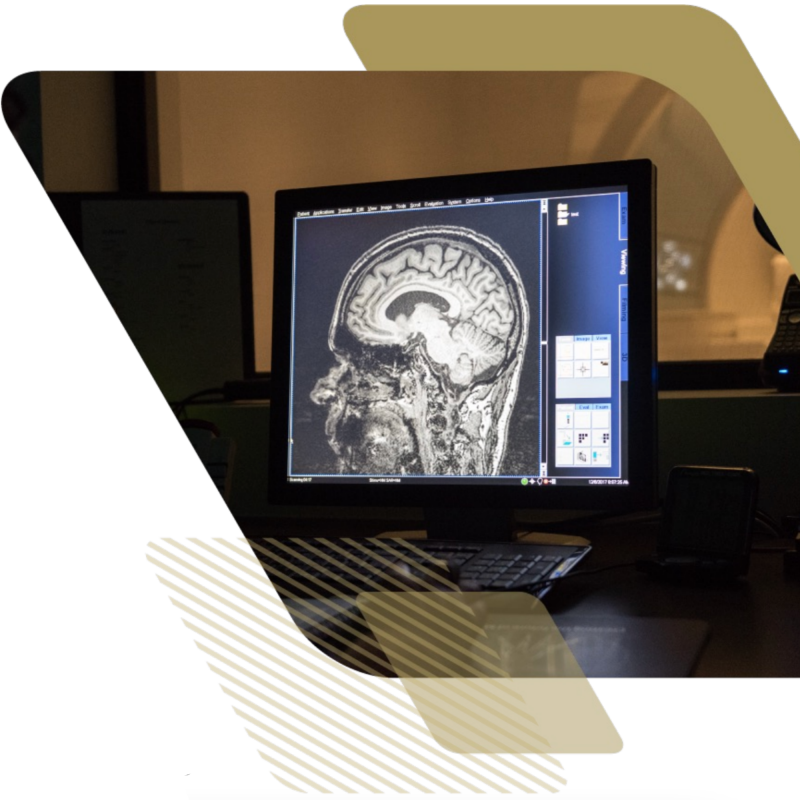 The School of Psychology at the Georgia Institute of Technology offers programs of study leading to the degrees of Master of Science and Doctor of Philosophy, with five areas of specialization: Cognition and Brain Science, Adult Development and Aging, Engineering Psychology, Industrial/Organizational Psychology, and Quantitative Psychology.
The School of Psychology at the Georgia Institute of Technology offers programs of study leading to the degrees of Master of Science and Doctor of Philosophy, with five areas of specialization: Cognition and Brain Science, Adult Development and Aging, Engineering Psychology, Industrial/Organizational Psychology, and Quantitative Psychology.
All five programs of study provide intensive exposure to the theoretical and methodological foundations of psychology with strong emphasis on quantitative skills. Each student is expected to show individual initiative in both research activities and academic study, supported by close faculty-student contact.
The School of Psychology also participates in an interdisciplinary Ph.D. degree program in Quantitative Biosciences and an interdisciplinary M.S. degree program in Human Computer Interaction (*please note that we do not offer a terminal Master’s degree in Psychology).
Our graduates have positions in academia, industry, the military, and government. In a survey of our 2007-2011 graduates, we found that 45% took a faculty position, 14% took a research position, 7% were working in a postdoctoral position, and 32% worked in industry. Our current student-to-faculty ratio is 4-to-1, and we strongly believe in the apprenticeship model of mentoring. In an anonymous survey conducted in 2012, our alumni state that they appreciate "the opportunity for interdisciplinary studies and research," consider their time here "extremely valuable," that Tech "prepared [them] extremely well for [their] career," and that "the quality of education [they] received was due to the dedication of the very accomplished faculty." We, of course, agree.
Download fact sheets and program information as a pdf here.
Doctoral degree programs
- Cognition and Brain Science: The Cognition and Brain Science specialty area for the Psychology Ph.D. program trains students to develop a thorough understanding of diverse aspects of cognition and neural mechanisms for neural
- Adult Development and Aging: Students gain an understanding of the biological, psychological, and social aspects of aging as they relate to cognitive development over the adult life span.
- Engineering: Engineering Psychology is the science of making technology accessible for all users. Engineering psychology operates at the intersection of experimental psychology and human factors engineering.
- Industrial/Organizational: Industrial/Organizational Psychology develops, extends, and applies psychological principles, data, and methodology in manufacturing, commercial, industrial, governmental, and other work-oriented organizations.
- Quantitative: Quantitative Psychology emphasizes the interface between quantitative methods and psychological issues. Graduates will be trained as quantitative specialists, with a substantial background in psychology.
 Application requirements
Application requirements
- A Bachelor’s degree or its equivalent in psychology or a related field (e.g., computer science, biology, linguistics, mathematics).
- GRE (Graduate Record Examination) general test scores (Optional)
- Three letters of recommendation
- For international students, proof of English proficiency (e.g., TOEFL scores)
The School admits students for graduate studies once a year in Fall and the graduate application deadline is December 1st of each year. We do not accept students for graduate studies in Spring. The Ph.D. application must be submitted online through the office of Graduate Studies and Admissions. Please visit the Graduate Admissions "FAQ" section for additional information about the application process: grad.gatech.edu.
Funding information
Ph.D. students obtain stipends either via GRAs, GTAs, or fellowships such as the NSF GRFP, NIH NRSA, and other competitive fellowships. Yearly stipends for Ph.D. students start at $33,500 (plus waiver of tuition) and include health insurance coverage. There are also a variety of sources of financial aid potentially available to (in-state, out-of-state, and international) graduate students.
For more information
For more information, please see psychology.gatech.edu, or contact or contact the school’s Academic Program Manager, Shebbie Murray, shebbie.murray@psych.gatech.edu.


